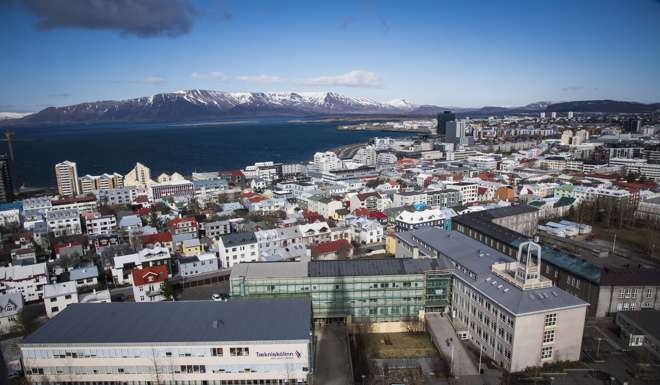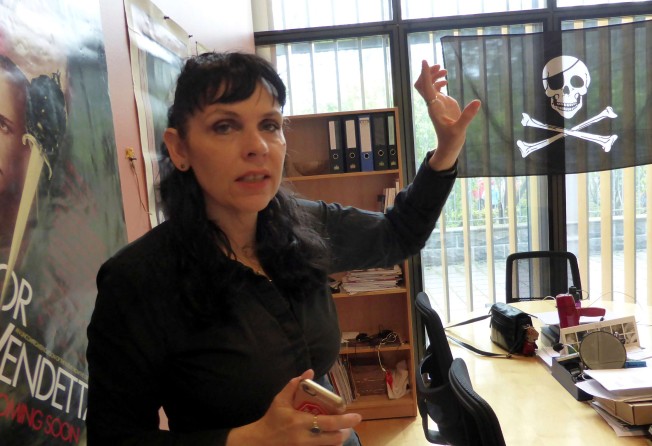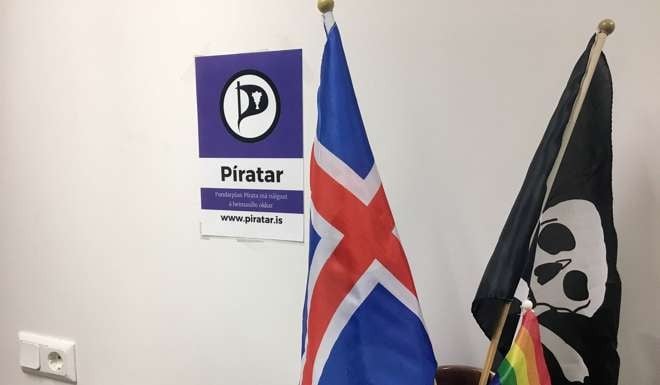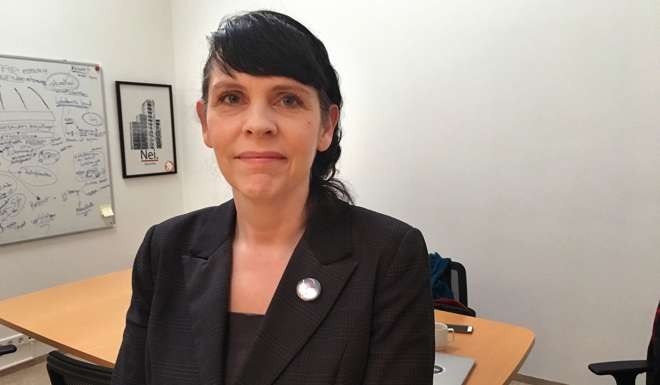
A party of pirates, led by a poet, is on the brink of winning government in Iceland

The party that could be on the cusp of winning Iceland’s national elections on Saturday didn’t exist four years ago.
Its members are a collection of anarchists, hackers, libertarians and Web geeks. It sets policy through online polls - and thinks the government should do the same. It wants to make Iceland “a Switzerland of bits,” free of digital snooping. It has offered Edward Snowden a new place to call home.
And then there’s the name: In this land of Vikings, the Pirate Party may soon be king.
The rise of the Pirates - from radical fringe to focal point of Icelandic politics - has astonished even the party’s founder, a poet, Web programmer and former WikiLeaks activist.

But this, after all, is 2016. And to a string of electoral impossibilities that suddenly became reality - including Britain voting for Brexit and Donald Trump winning the Republican nomination - the world may soon add a Pirate Party-led government in Europe.
Victory for the Pirates may not mean much in isolation. This exceptionally scenic, lava-strewn rock just beyond the Arctic Circle has a populationof only 330,000, with no army and an economy rooted in tourism and fishing.
But a Pirate Party win would offer a vivid illustration of how far Europeans are willing to go in their rejection of the political mainstream, adding to a string of insurgent triumphs emanating from both the far left and far right.

“People want real changes and they understand that we have to change the systems, we have to modernise how we make laws,” said Jónsdóttir, whose jet-black hair and matching nail polish cut a distinctive profile in a country where politics has long been dominated by paunchy blond men.
The sticker affixed to the back of her chrome-finish laptop stands out, too: an imitation seal of the US government, the familiar arrow-bearing eagle encircled by the words “National Security Agency Monitored Device.”
At the Pirates’ tech-start-up-esque office in an industrial area of Reykjavik’s seafront, a Guy Fawkes mask hangs from the wall and a skull-and-crossbones flag peeks out from a ceramic vase.

But Iceland has been afflicted by the same anti-establishment fervour that has swept the rest of the Western world in recent years.
In many ways, the alienation from politics has been even more acute here. The 2008 global financial crisis brought the once high-flying economy to ruin, saved only by a US$4.6 billion international bailout. Bankers went to jail, and a street protest movement was born.
The populist spirit was revved up once again this past spring when the leak of the Panama Papers revealed an offshore company owned by the prime minister’s wife that staked a claim to Iceland’s collapsed banks.
With protests building, the prime minister quit and new elections were called. But the public’s cynicism about a political system long steered by an insider clique only deepened.
“The distrust that had long been germinating has now exploded. The Pirates are riding on that wave,” said Ragnheithur Kristjánsdóttir, a political history professor at the University of Iceland. “We’ve had new parties before, and then they’ve faded. What’s surprising is that they’re maintaining their momentum.”
The latest opinion polls show the Pirates jostling for first place with the Independence Party. The centre-right party is synonymous with Iceland’s political establishment, having governed the country for much of its modern history. But it was badly tarnished by its stewardship of the bubble economy in the lead-up to the 2008 crash.
“People are still angry at us for that,” acknowledged Birgir Ármannsson, an Independence member of Parliament. “There’s still a lot of distrust in traditional politics and traditional politicians.”
That’s understandable given the scale of Iceland’s economic meltdown, Ármannsson said. But he also said voters should give the current government, of which Independence is a junior partner, credit for Iceland’s economic revival. Now out of the doldrums, the country is back to low unemployment, low inflation and a balanced budget - all of which could be at risk if the Pirates come to power.
“You can try experiments,” said the suit-and-tie clad Ármannsson in an interview at the country’s 19th-century stone Parliament building. “But if you want economic stability and growth, then you have to vote for us.”
Ármannsson questioned what the Pirates actually represent: “They know what they’re against. But it’s difficult to find out what they’re really for.”
Whether Iceland should join the European Union, for instance, is a debate that has raged in the country for years. But the Pirates have not taken a stand, insisting instead that the matter should be decided in a national referendum.
To party devotees, that’s fine. The Pirates, they say, are less about any specific ideology than they are about a belief that the West’s creaking political systems can be hacked to give citizens a greater say in their democracy.